In the early morning the garden is very quiet. I hear only the honking sound of a nuthatch in the Manitoba Maples next door. The usual morning sing-a-thon has ended for this year. The birds have finished nesting and no longer sing to signify the boundaries of their feeding territories. (If only we humans could resolve our boundary disputes with a morning song!).
It may surprise some readers to learn that the migrating birds are now preparing to leave. Once the fledglings are out of the nest and independent, the time arrives to feed up and head south. Most of our migrating birds head down the Mississippi, and many carry on to South America. We now know that migrants move from one "island" of habitat to the next. In a world of urban sprawl, they are seeking brushy areas with water. I hope my garden provides what they need. Last spring, a few warblers, including a red start, stopped by for a rest and a drink. Many migrating birds are not looking for feeder food. Warblers, for instance, eat insects. The redstart worked the perennial garden for a day, eating bugs, and then it flew off. There were not enough insects in my small patch to entice it to nest.
Some of the migrants hang about to molt. This does not take long. An American goldfinch turns from hot yellow to delicate greenish yellow in ten days. The new feathers push the old feathers out. Gold finches are seed eaters who demolish the weed seeds in a garden.
With the abundant mosquito and fly population this summer, it has been a good year for birds, signifying reproductive success. The warblers come north for the bugs and we gave them a good feed up this summer.
I like to do my weeding in the early mornings. During the warm afternoons, the earth resists the trowel but in the dew-soaked earth, the weeds are easier to dig. The trowel attacks the dandelions and other deep rooted plants, but I also have another efficient weeding tool. I do not know its proper name but it is a simple thing, a loop of metal on a handle. It scrapes a layer of soil pulling out the plantain, the chickweed and other shallow rooted interlopers.
By eight o'clock the female ruby-throated humming bird swings by to hit up the delphiniums for nectar. It is possible that she nested in one of my trees but the nest is so small, the size of a thimble, that I'll never find it. She''s a migrant and feeding up for the voyage.
The bees fumble the monks hood. This is a stately blue and white plant, a short blooomer, which takes over the back of the perennial bed as the delphinium stalks slowly turn to seed. White monks hood grows in my front garden along with the true blue variety. This is one of the toughest customers and always survives the winter but it needs to be wired to a tall stake or it buckles at the knees.
A friend suggested I pull out the campanula, the robust blue bell flower that is growing in all the back lanes and here and there among my garden beds. I will do so once they set up their seeds but for now the bees love them dearly and I love and need the bees. Strangely the bell flower only grows flowers on one side of its stalk. This plant also spreads by creeping root, so Iwon't be able to eliminate it entirely. I'll just keep it in check.. I note here the bees also love the mullein. Another reason to accept native plants.
The same friend also wondered why I let the arabis creep through the garden around the perennials. Perhaps I should cut it back? But arabis is a tricky plant. It can be killed over the winter, especially if we have no snow. So for now, I let it spread and fatten, knowing that a lot of it may not survive by spring.
I can't believe I am still pulling meadow rue, dame's rocket and forget-me-nots, trying to yank them out before they spread too many seeds. For an unknown reason, the policeman's helmets (or Himalayan impatiens) did not seed into by garden this year. I miss it.
Tip. On hot days, get out early for easier weeding.
Tuesday, 12 August 2008
The Dew is Gleaming on the Grass
Labels:
arabis,
birds,
dame's rocket,
hummnng birds,
meadow rue.,
migrant birds
Subscribe to:
Post Comments (Atom)

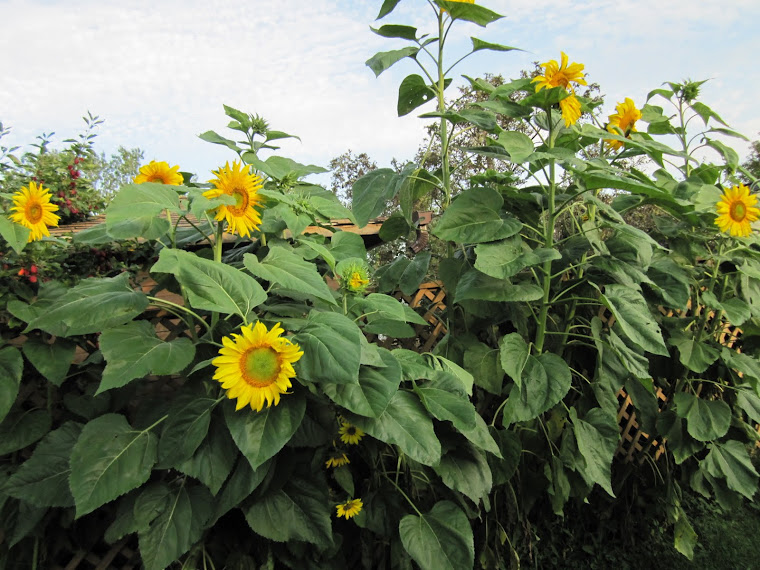

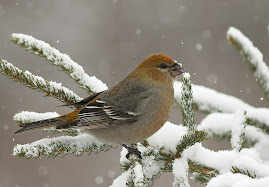



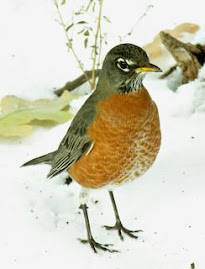

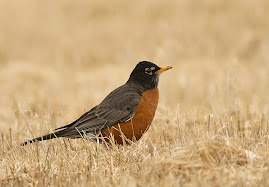
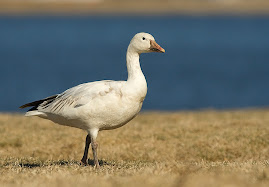

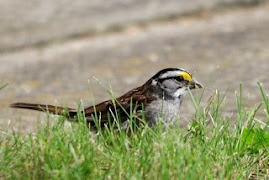

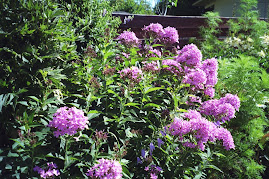
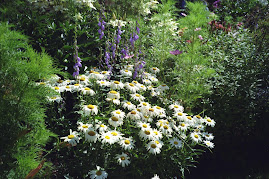














































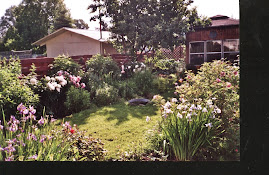





No comments:
Post a Comment